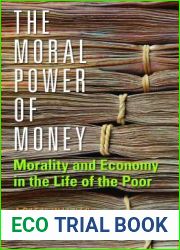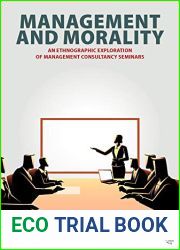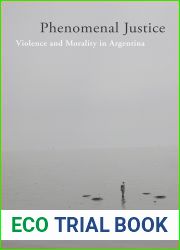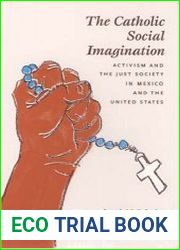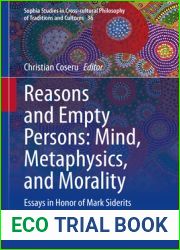
BOOKS - Morality After Calvin: Theodore Beza's Christian Censor and Reformed Ethics (...

Morality After Calvin: Theodore Beza's Christian Censor and Reformed Ethics (Oxford Studies in Historical Theology)
Author: Kirk M. Summers
Year: October 26, 2016
Format: PDF
File size: PDF 16 MB
Language: English

Year: October 26, 2016
Format: PDF
File size: PDF 16 MB
Language: English

Morality After Calvin: Theodore Beza's Christian Censor and Reformed Ethics In Morality After Calvin, Kirk M. Summers delves into the development of ethical thought within the Reformed Orthodox tradition following the death of John Calvin, shedding light on the theoretical underpinnings of disciplinary activity during this period. The book is centered around a previously unstudied poetic work by French theologian Theodore Beza, titled Cato Censorius Christianus (1591), and explores its significance in understanding the moral fervor of the late sixteenth century. Through a detailed analysis of Beza's works and correspondence, Summers reveals how the Christian life is not merely about grace and salvation, but rather begins with it. The Principles of Morality According to Beza, the principles of morality are rooted in God's creation of human relationships, the structure of nature, and the issuance of commands, as seen in the Mosaic Law and the teachings of Christ. These principles include an ethos of listening, sincerity, engagement with one's calling, love for one's neighbor, respect for divine order, and a desire for the purity of the flock.
Мораль после Кальвина: Христианский цензор Теодора Безы и реформатская этика в морали После Кальвина Кирк М. Саммерс углубляется в развитие этической мысли в рамках реформатской православной традиции после смерти Иоанна Кальвина, проливая свет на теоретические основы дисциплинарной деятельности в этот период. Книга сосредоточена вокруг ранее не изученного поэтического произведения французского богослова Теодора Безы под названием «Cato Censorius Christianus» (1591) и исследует его значение в понимании морального пыла конца XVI века. Посредством детального анализа работ и переписки Безы Саммерс раскрывает, как христианская жизнь не просто о благодати и спасении, а скорее начинается с этого. Принципы морали Согласно Безе, принципы морали коренятся в создании Богом человеческих отношений, устройстве природы и выдаче команд, как это видно в Моисеевом законе и учении Христа. Эти принципы включают в себя дух слушания, искренность, сопричастность своему призванию, любовь к ближнему, уважение к божественному порядку и стремление к чистоте стада.
Morale après Calvin : censeur chrétien Theodore Bèza et l'éthique réformée dans la morale Après Calvin, Kirk M. Summers approfondit le développement de la pensée éthique dans la tradition orthodoxe réformée après la mort de Jean Calvin, mettant en lumière les fondements théoriques de l'activité disciplinaire au cours de cette période. livre se concentre sur une œuvre poétique précédemment inexplorée du théologien français Theodore Besa intitulée « Cato Censorius Christianus » (1591) et explore son importance dans la compréhension de la ferveur morale de la fin du XVIe siècle. Par une analyse détaillée des œuvres et de la correspondance de Bèza, Summers révèle comment la vie chrétienne ne se résume pas à la grâce et au salut, mais commence par là. Principes moraux Selon Besse, les principes moraux sont enracinés dans la création par Dieu des relations humaines, l'organisation de la nature et l'émission des ordres, comme le montrent la Loi mosaïque et l'enseignement du Christ. Ces principes comprennent l'esprit d'écoute, la sincérité, l'appropriation de sa vocation, l'amour du prochain, le respect de l'ordre divin et la recherche de la pureté du troupeau.
Moral después de Calvino: censor cristiano Teodoro Beza y la ética reformada en la moral Después de Calvino Kirk M. Summers profundiza en el desarrollo del pensamiento ético dentro de la tradición ortodoxa reformada tras la muerte de Juan Calvino, arrojando luz sobre los fundamentos teóricos de la actividad disciplinaria durante este período. libro se centra en torno a una obra poética del teólogo francés Theodore Beza, previamente no estudiada, titulada «Cato Censorius Christianus» (1591) y explora su importancia en la comprensión del fervor moral de finales del siglo XVI. A través de un análisis detallado de las obras y la correspondencia de Beza, Summers revela cómo la vida cristiana no se trata simplemente de gracia y salvación, sino que comienza con esto. Principios de la moralidad Según Beza, los principios de la moralidad están arraigados en la creación de relaciones humanas por parte de Dios, el arreglo de la naturaleza y la dispensación de comandos, como se ve en la ley mosaica y la enseñanza de Cristo. Estos principios incluyen el espíritu de escucha, la sinceridad, la pertenencia a su vocación, el amor al prójimo, el respeto al orden divino y la búsqueda de la pureza del rebaño.
Moral pós-Calvin: O censor cristão Theodora Beza e a ética reformada na moral Depois de Calvin, Kirk M. Summers aprofundou-se no desenvolvimento do pensamento ético dentro da tradição ortodoxa reformada após a morte de João Calvin, lançando luz sobre os fundamentos teóricos das atividades disciplinares durante este período. O livro se concentra em torno de uma obra poética antes não estudada do teólogo francês Theodore Beza, intitulada «Cato Censorius Christianus» (1591), e explora seu significado na compreensão do esfaqueamento moral do final do século XVII. Através de uma análise detalhada dos trabalhos e correspondências de Beza Summers revela como a vida cristã não é apenas sobre graça e salvação, mas sim sobre isso. Os princípios da moralidade Segundo Beza, os princípios da moral estão fundados na criação de relações humanas por Deus, no dispositivo da natureza e na entrega de comandos, como se vê na i de Moisés e nos ensinamentos de Cristo. Estes princípios incluem o espírito de audiência, a sinceridade, a implicação da sua vocação, o amor pelo próximo, o respeito pela ordem divina e a busca pela pureza do rebanho.
Moralità dopo Calvin: Il censore cristiano Theodore Besa e etica riformata nella morale Dopo Calvin Kirk M. Summers approfondisce lo sviluppo del pensiero etico nell'ambito della tradizione ortodossa riformata dopo la morte di Giovanni Calvin, facendo luce sulle basi teoriche delle attività disciplinari in questo periodo. Il libro si concentra attorno a un'opera poetica mai studiata prima del teologo francese Theodore Besa, intitolata «Cato Censorius Christianus» (1591), e ne indaga il significato nella comprensione del pugnale morale della fine del XVI secolo. Attraverso un'analisi dettagliata dei lavori e la corrispondenza di Besa Summers rivela come la vita cristiana non è solo sulla grazia e la salvezza, ma piuttosto inizia con questo. I principi morali Secondo Beze, i principi morali sono fondati nella creazione di relazioni umane da parte di Dio, nell'apparato della natura e nell'estradizione di comandi, come si vede nella legge di Mosè e nell'insegnamento di Cristo. Questi principi comprendono lo spirito di ascolto, la sincerità, la comprensione della sua vocazione, l'amore per il prossimo, il rispetto per l'ordine divino e la ricerca della purezza del gregge.
Moral nach Calvin: Der christliche Zensor Theodor Bez und die reformierte Ethik in der Moral Nach Calvin taucht Kirk M. Summers in die Entwicklung des ethischen Denkens innerhalb der reformierten orthodoxen Tradition nach dem Tod von Johannes Calvin ein und beleuchtet die theoretischen Grundlagen der Disziplinartätigkeit in dieser Zeit. Das Buch konzentriert sich auf ein bisher unerforschtes poetisches Werk des französischen Theologen Theodore Beza mit dem Titel „Cato Censorius Christianus“ (1591) und untersucht seine Bedeutung für das Verständnis der moralischen Inbrunst des späten 16. Jahrhunderts. Durch eine detaillierte Analyse der Werke und der Korrespondenz von Beza enthüllt Summers, wie es im christlichen ben nicht nur um Gnade und Erlösung geht, sondern vielmehr damit beginnt. Die Prinzipien der Moral Nach Bez, die Prinzipien der Moral sind verwurzelt in Gottes Erschaffung der menschlichen Beziehungen, die Anordnung der Natur und die Erteilung von Befehlen, wie es in der mosaischen Gesetz und die hre Christi. Zu diesen Grundsätzen gehören der Geist des Zuhörens, die Aufrichtigkeit, die Zugehörigkeit zur eigenen Berufung, die Liebe zum Nächsten, die Achtung vor der göttlichen Ordnung und das Streben nach Reinheit der Herde.
Moralność po Calvinie: Chrześcijański cenzor Teodora Bezy i reformowana etyka w moralności po Calvinie, Kirk M. Summers zagłębia się w rozwój myśli etycznej w ramach reformowanej tradycji prawosławnej po śmierci Johna Calvina, rzucanie światła na teoretyczne podstawy działalności dyscyplinarnej w tym okresie. Książka skupia się wokół niewyjaśnionego wcześniej dzieła poetyckiego francuskiego teologa Théodore'a Bezy zatytułowanego „Cato Censorius Christianus” (1591) i bada jego znaczenie dla zrozumienia moralnego zapału końca XVI wieku. Poprzez szczegółową analizę pracy i korespondencji Bezy, Summers ujawnia, jak życie chrześcijańskie nie jest po prostu o łasce i zbawieniu, ale raczej zaczyna się tam. Zasady moralności Według Bezy, zasady moralności są zakorzenione w stworzeniu przez Boga stosunków międzyludzkich, układzie natury i wydawaniu przykazań, jak widać w Prawie Mojżeszowym i naukach Chrystusa. Zasady te obejmują ducha słuchania, szczerości, własności powołania, miłości do bliźniego, szacunku dla porządku Bożego i dążenia do trzodowej czystości.
''
Calvin'den Sonra Ahlak: Theodore Beza'nın Hıristiyan Sansürü ve Ahlakta Reform Etiği Calvin'den sonra Kirk M. Summers, John Calvin'in ölümünden sonra Reform Ortodoks geleneği çerçevesinde etik düşüncenin gelişimini araştırıyor ve bu dönemde disiplin faaliyetinin teorik temellerine ışık tutuyor. Kitap, Fransız teolog Théodore Beza'nın "Cato Censorius Christianus" (1591) adlı daha önce keşfedilmemiş bir şiirsel çalışması etrafında toplanıyor ve 16. yüzyılın sonlarındaki ahlaki coşkuyu anlamadaki önemini araştırıyor. Beza'nın çalışmalarının ve yazışmalarının ayrıntılı bir analiziyle Summers, Hristiyan yaşamının sadece lütuf ve kurtuluşla ilgili olmadığını, daha ziyade orada başladığını ortaya koyuyor. Beza'ya göre, ahlakın ilkeleri, Musa Yasası'nda ve Mesih'in öğretilerinde görüldüğü gibi, Tanrı'nın insan ilişkilerini yaratması, doğanın düzenlenmesi ve emirlerin verilmesinden kaynaklanmaktadır. Bu ilkeler dinleme ruhu, samimiyet, kişinin çağrısına sahip olma, komşusuna sevgi, ilahi düzene saygı ve sürü saflığı arayışını içerir.
الأخلاق بعد كالفن: الرقيب المسيحي لثودور بيزا والأخلاق الإصلاحية في الأخلاق بعد كالفن، يتعمق كيرك إم سمرز في تطوير الفكر الأخلاقي في إطار التقليد الأرثوذكسي الإصلاحي بعد وفاة جون كالفن، ويلقي الضوء على الأسس النظرية للنشاط التأديبي خلال هذه الفترة. يدور الكتاب حول عمل شعري لم يتم استكشافه سابقًا لعالم اللاهوت الفرنسي تيودور بيزا بعنوان «كاتو سينسوريوس كريستيانوس» (1591) ويستكشف أهميته في فهم الحماسة الأخلاقية في أواخر القرن السادس عشر. من خلال تحليل مفصل لعمل بيزا ومراسلاته، يكشف سمرز كيف أن الحياة المسيحية لا تتعلق فقط بالنعمة والخلاص، بل تبدأ هناك. وفقًا لبيزا، فإن مبادئ الأخلاق متجذرة في خلق الله للعلاقات الإنسانية، وترتيب الطبيعة، وإصدار الأوامر، كما يتضح من الشريعة الموسوية وتعاليم المسيح. تتضمن هذه المبادئ روح الاستماع والإخلاص وملكية دعوة المرء ومحبة الجار واحترام النظام الإلهي والسعي وراء نقاء القطيع.
加爾文之後的道德:西奧多·貝紮(Theodore Beza)的基督教審查員和道德改革倫理學在加爾文之後,柯克M.薩默斯(Kirk M. Summers)深入研究了約翰去世後改革宗東正教傳統中倫理思想的發展,闡明了該時期紀律活動的理論基礎。這本書圍繞著法國神學家西奧多·貝薩(Theodore Beza)先前未經研究的詩歌作品「Cato Censorius Christianus」(1591),並探討了它在理解16世紀後期的道德熱情方面的重要性。通過對Beza作品和書信的詳細分析,Summers揭示了基督徒的生活不僅是關於恩典和救贖的,而且是從此開始的。根據貝薩的道德原則,道德原則植根於上帝建立人際關系,自然的安排和命令的分配,這在摩西律法和基督的教義中很明顯。這些原則包括聽力精神,誠意,對自己的職業的參與,對鄰居的熱愛,對神聖秩序的尊重以及對牛群純潔的渴望。







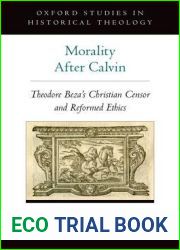


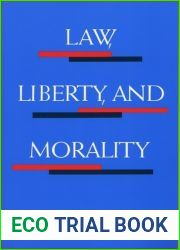

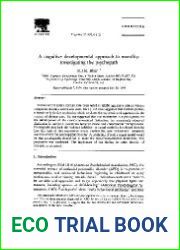

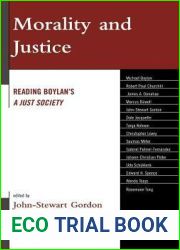
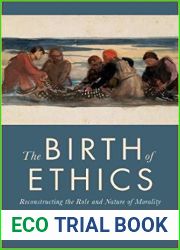
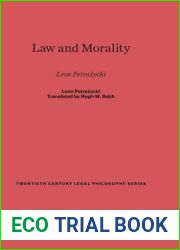


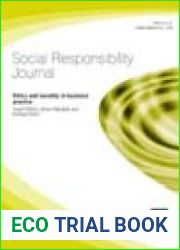

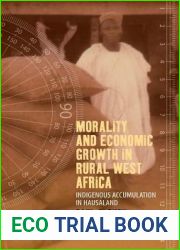
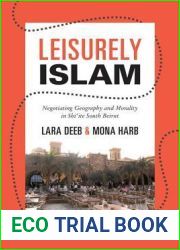
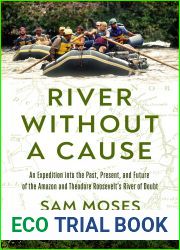


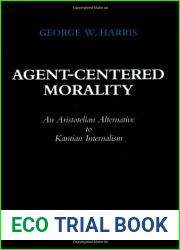
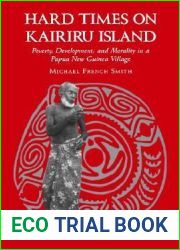
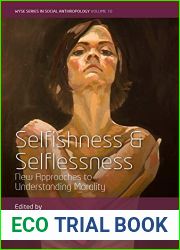



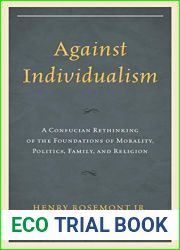
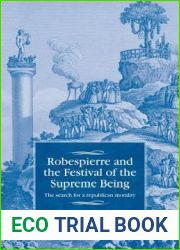
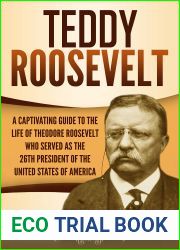


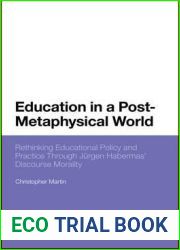
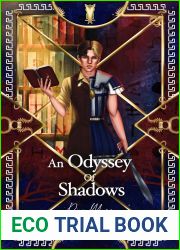
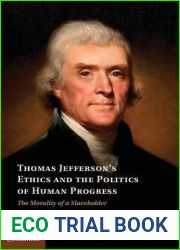


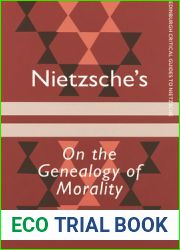
![The Scientific Work of Morris Loeb …: Ed. By Theodore W. Richards … [ 1913 ] The Scientific Work of Morris Loeb …: Ed. By Theodore W. Richards … [ 1913 ]](https://myecobook.life/img/5/555381_oc.jpg)
